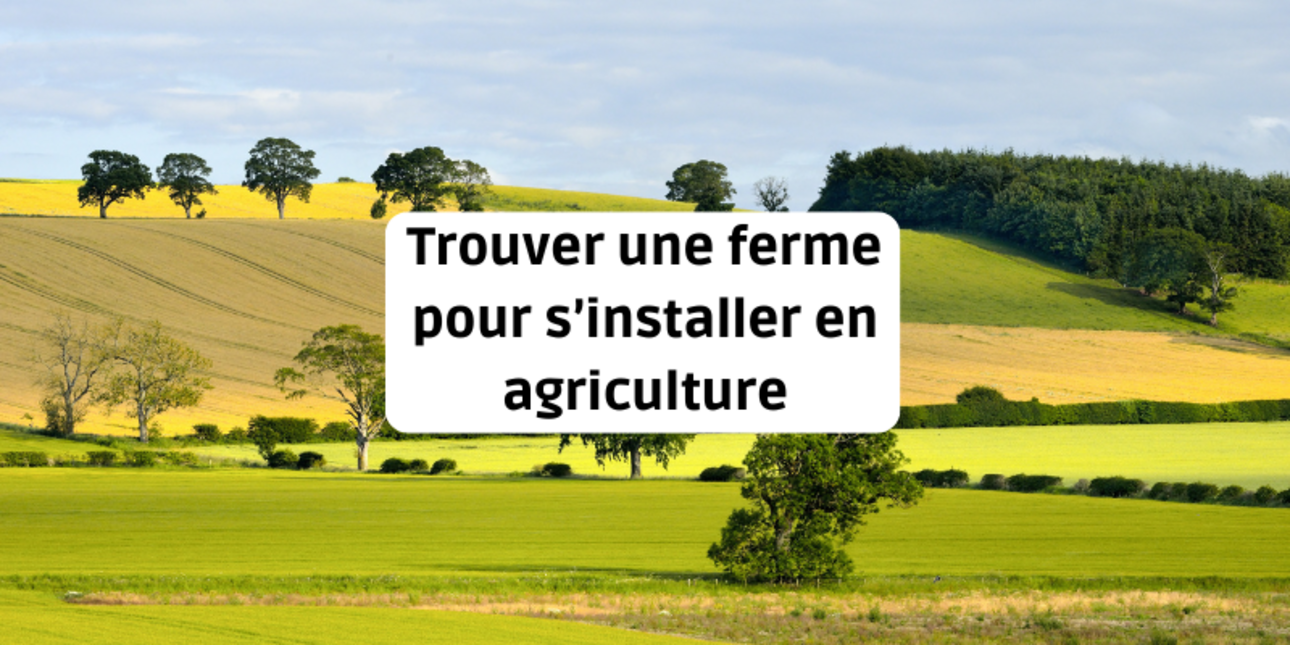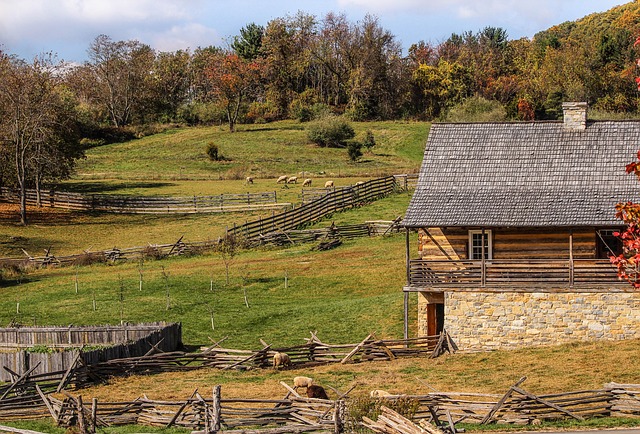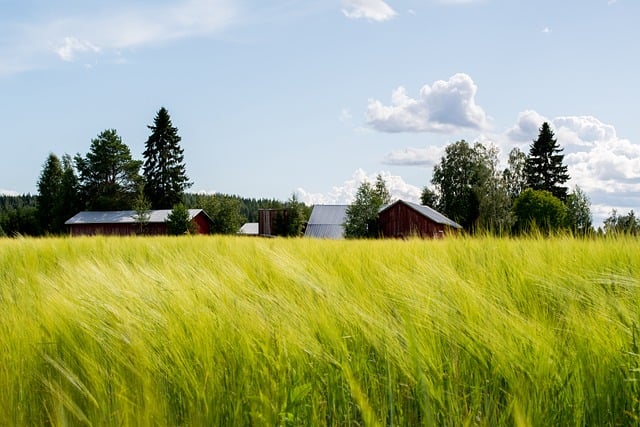
Setting up in farming is an ambitious project, and one that attracts a large number of applicants every year in France. With around 15,000 people setting up in farming every year, the sector offers a wide range of opportunities.
However, the road to acquiring a farm and setting up a farming business is strewn with pitfalls. This article explores the different stages and resources needed to make a success of this project.
Land pressure is one of the main obstacles to setting up a farm.
Half of all farm managers in France are over 55. However, not all of these farms will be up for sale in the next few years. These farm managers may be replaced by a younger spouse, a child or a partner. This means that 2/3 of all new farms are family-run.
At the same time, as the number of farmers has fallen, the average size of farms has risen steadily, from 55 to 69 hectares between 2010 and 2020.
Access to land is therefore often difficult due to high demand and competition between farmers for available land.
The Contrôle des Structures and the Société d'Aménagement Foncier et d'Établissement Rural (SAFER) play a crucial role in regulating the agricultural land market in France. They intervene to facilitate access to land for new farmers and ensure that transactions respect the priorities of the Rural Code, such as the installation of young farmers rather than the expansion of existing farms.
Before looking for a farm, it's essential to clearly define your farming project: the geographical area, the size of the farm, the production envisaged, the presence of a dwelling house, etc.
This project should be based on your training and your various farming experiences, to ensure that it is coherent and feasible.
You must then clearly list the mandatory and ancillary criteria for your project. These will then guide you in your selection of properties to visit.
The budget is the definition of your maximum purchase price in relation to the financing terms and conditions. It will necessarily be very theoretical at first.
It should include an assessment of the costs of buying land, buildings and farm equipment, as well as working capital requirements for the first few years of operation. A well-structured business plan is crucial for obtaining finance and support.
However, this budget should not be used as a maximum threshold for selecting farms to visit.
The price advertised for sale may be negotiable. It may be possible to rent the land rather than buy it, or to use the services of a land investor or a land holding company.
The price quoted may not include all the items to be taken over: equipment, livestock and stocks are not always included in the sale price.
Many resources, such as our practical guides and articles on financing tools, are available to help future farmers put a figure on their project and secure the necessary financing.
The PAIs are located in the chambers of agriculture in each département and are an ideal starting point for anyone wishing to set up in farming. They also direct applicants towards farms to be taken over and technical and financial partners.
A personal network is a valuable resource when looking for a farm.
Relationships with other farmers, professional associations and agricultural cooperatives can provide valuable opportunities and advice. Taking part in local events and farm shows can also help you to meet potential transferors and raise your profile in the farming community.
Many people set up their own business as a result of an employment contract or work placement on a farm. So don't hesitate to spread the word about your plans.
To find a farm, there are a number of online resources available:
The Répertoire Départ Installation (RDI) is an online tool managed by the Chamber of Agriculture, which lists offers of farms to be taken over. You can search by region, type of production, surface area and price, making it easier for sellers and buyers to get in touch.
SAFER's proprietes-rurales.com website features farmland for sale and for rent. It is a key player in regulating the land market and provides information on the procedures to follow when acquiring farmland.
Ad portals bring together property advertisements. They can be generalist portals such as leboncoin.fr or specialist portals such as ma-propriete.fr.
They feature ads from property professionals or private owners that are not always available on the previous sites. They offer a wide selection of ads and allow searches to be filtered according to specific criteria.
You can also find ads for farms for sale on sites such as FEVE, ELOI, Terres-de-liens, etc.
Specialist estate agents and notaries can also offer farms for sale. They often have exclusive information on forthcoming sales and can offer valuable legal advice on the purchase.
Once potential farms have been identified, it is crucial to visit them to assess their condition, production potential and investment requirements. These visits provide a better understanding of the constraints and opportunities of each farm.
The first visit should enable you to validate your main criteria of choice, which explains why it is necessary to have defined your project in detail.
On a subsequent visit, we advise you to take an expert or agricultural adviser with you to get a professional opinion on the feasibility of the project.
Beware of falling in love, as this can make you forget your selection criteria and work against you in negotiations. Although your future farm will be your home, it will above all be the headquarters of your future business: it must meet your needs and be profitable.
Once you've found the ideal farm, the next step is to make an offer to buy it.
This offer needs to be well thought through and based on an accurate assessment of the property's value. It is important to negotiate the terms of sale and ensure that all legal and financial aspects are clear before signing a preliminary sale agreement.
The services of a property professional are strongly recommended to ensure a secure transaction.
Finding a farm to set up in agriculture is a complex process that requires meticulous preparation and the use of multiple resources.
From defining the project to completing the purchase, each stage is crucial to the success of the move.
By surrounding themselves with the right advisers and using the tools available, future farmers can turn their dream into reality and contribute to the renewal of the agricultural sector in France.